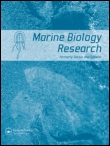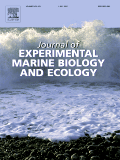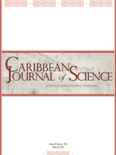
Marine Biodiversity
metrics 2024
Championing Research in Marine Ecosystems
Introduction
Marine Biodiversity, published by SPRINGER HEIDELBERG, stands as a pivotal journal in the fields of Aquatic Science, Ecology, Evolution, Behavior and Systematics, and Oceanography. Established in 2009, it has gained a prominent place in academic discourse, evidenced by its Q2 ranking across multiple categories in the latest 2023 assessments. The journal operates out of Germany, specifically from its Heidelberg address, and caters to an international audience with a keen interest in the vast and complex dynamics of marine ecosystems. With an ongoing convergence of research outputs until 2024, Marine Biodiversity encourages contributions that expand our comprehension of marine life and its conservation, positioning itself as a vital resource for researchers, professionals, and students alike. Although currently not an open access journal, it maintains a robust reputation backed by its favorable Scopus ranks, which indicate its significant contribution to the respective fields. By disseminating high-quality, peer-reviewed articles, Marine Biodiversity plays an essential role in promoting scholarly communication and advancement in marine science.
Metrics 2024
 0.50
0.50 1.50
1.50 1.40
1.40 42
42Metrics History
Rank 2024
Scopus
IF (Web Of Science)
JCI (Web Of Science)
Quartile History
Similar Journals

VIE ET MILIEU-LIFE AND ENVIRONMENT
Innovating Solutions for Aquatic Ecosystem ChallengesVIE ET MILIEU - LIFE AND ENVIRONMENT is a pivotal journal in the realms of aquatic science and ecology, serving as a vital platform for researchers and professionals interested in the interconnections between living organisms and their environments. Published by the esteemed OBSERVATOIRE OCEANOLOGIQUE BANYULS in France, this journal has been disseminating valuable research since its inception in 1980, with volumes covering various topics pertinent to environmental dynamics through to 2024. Despite its current classification in the Q4 quartile for both aquatic science and ecology, the journal offers a unique opportunity for scholars to contribute to niche areas often overlooked by more prominent publications. VIE ET MILIEU is committed to fostering a comprehensive understanding of ecological interactions and the conservation of aquatic ecosystems, making it an essential resource for those engaged in environmental science and biology. Researchers can access a wealth of knowledge that supports their work, encourages collaboration, and inspires innovative approaches to pressing ecological issues.

GULF AND CARIBBEAN RESEARCH
Innovating Conservation Strategies for Vital Aquatic RegionsGulf and Caribbean Research is an esteemed academic journal published by the University of Southern Mississippi, dedicated to advancing the understanding of aquatic ecosystems in the Gulf of Mexico and the Caribbean region. With an ISSN of 1528-0470 and an E-ISSN of 2572-1410, the journal serves as an essential platform for researchers and professionals in the fields of Aquatic Science, Oceanography, and Water Science and Technology, recognized in the 2023 Q3 Quartile rankings across these disciplines. The journal welcomes diverse contributions including original research, reviews, and technical notes, encouraging interdisciplinary approaches to address ecological and environmental challenges within its scope. Despite the absence of an open access option, it provides invaluable insights, evidenced by its Scopus rankings, which position it within the 31st to 33rd percentile across various related categories. The engaging research articulated in Gulf and Caribbean Research fosters dialogue and collaboration, making it a vital resource for those committed to scientific discovery and conservation efforts in these critical aquatic environments.

BULLETIN OF MARINE SCIENCE
Pioneering insights in marine and atmospheric studies.BULLETIN OF MARINE SCIENCE, published by Rosenstiel School of Marine and Atmospheric Science, is a prominent journal dedicated to advancing the field of marine science through scholarly research and peer-reviewed articles. With an ISSN of 0007-4977 and an E-ISSN of 1553-6955, this journal has been contributing to significant scientific discourse since its inception in 1973. Covering a wide spectrum of topics in aquatic sciences and oceanography, it has maintained a respectable position in the academic community, as evidenced by its Q3 ranking in both categories for 2023. Although currently not an open-access journal, it provides essential access to groundbreaking research that informs marine conservation, ecological studies, and atmospheric sciences. Situated in the United States at 4600 Rickenbacker Causeway, Miami, FL 33149, the journal serves as a vital resource for researchers, professionals, and students seeking to engage with the latest findings in marine science and foster a deeper understanding of our oceans.

Marine Biology Research
Exploring the depths of aquatic knowledge.Marine Biology Research is a premier journal published by Taylor & Francis, focusing on the dynamic field of marine biology and its intersecting realms of aquatic science, ecology, and oceanography. Since its inception in 2005, this journal has served as a crucial platform for researchers and professionals to disseminate their findings, with a vision extending to 2024 and beyond. The journal is recognized with a Q3 quartile ranking in both Aquatic Science and Ecology, Evolution, Behavior and Systematics, underscoring its growing influence in these fields as evidenced by its Scopus rankings. Located in the United Kingdom, Marine Biology Research aims to foster collaboration and innovation through open access options, facilitating knowledge exchange among the academic community. With a steady commitment to advancing marine sciences, this journal is an invaluable resource for those dedicated to understanding and preserving our ocean ecosystems.

Ocean Science Journal
Transforming Ocean Insights into ActionOcean Science Journal, published by the Korea Institute of Ocean Science and Technology (KIOST), is a pivotal resource for scholars and practitioners in the field of oceanography. With the ISSN 1738-5261 and E-ISSN 2005-7172, this journal presents cutting-edge research from 2006 to 2024, bridging fundamental and applied ocean sciences. Based in South Korea, with its headquarters located in Busan, the journal has achieved a commendable Scopus rank of #72 out of 145 in the domain of Earth and Planetary Sciences, placing it in the 50th percentile among peer publications. Classified in the Q3 category of the 2023 Oceanography rankings, Ocean Science Journal offers a platform for innovative studies that advance understanding of marine environments and promote sustainable ocean practices. While it does not operate under an open access model, readers and contributors can expect high-quality, peer-reviewed material that addresses pressing oceanic challenges and developments. This journal serves as an essential tool for researchers, professionals, and students committed to fostering marine science and ocean technology.

JOURNAL OF EXPERIMENTAL MARINE BIOLOGY AND ECOLOGY
Navigating the Waters of Marine Research and InnovationJOURNAL OF EXPERIMENTAL MARINE BIOLOGY AND ECOLOGY, published by Elsevier, serves as a premier outlet for researchers dedicated to the exploration and understanding of marine organisms and their ecosystems. Established in 1967 and running until 2024, this prestigious journal holds an impact factor reflecting its significance within the scientific community, particularly in the fields of Aquatic Science and Ecology, Evolution, Behavior and Systematics, where it ranks in the Q2 quartile. With a focus on original research and critical reviews, it aims to advance knowledge in marine biology and ecology, fostering a deeper understanding of marine environments that are crucial to biodiversity and ecosystem health. The journal is indexed in Scopus, with impressive rankings highlighted by a 73rd percentile in Ecology and a 68th percentile in Aquatic Science, making it an essential resource for researchers, professionals, and students alike wanting to contribute to and stay informed about advancements in marine ecological research.

Russian Journal of Marine Biology
Fostering Sustainable Marine Environments Through ResearchRussian Journal of Marine Biology, published by MAIK NAUKA/INTERPERIODICA/SPRINGER, serves as a vital platform for disseminating research in the fields of Aquatic Science and Oceanography. With an ISSN of 1063-0740 and E-ISSN 1608-3377, this journal has been in circulation since 1996 and continues to contribute valuable insights across its specified domains. Although it currently holds a Q4 quartile ranking in both fields as of 2023, the journal's impact is underscored by its focused niche in marine biology, attracting contributions from a diverse global research community. Researchers and professionals will find its articles essential for advancing their knowledge and understanding of marine ecosystems and biological processes. While not currently an open access journal, the Russian Journal of Marine Biology remains committed to enhancing the scientific discourse aimed at fostering sustainable marine environments.

CARIBBEAN JOURNAL OF SCIENCE
Advancing Caribbean science through innovative research.Caribbean Journal of Science, published by the University of Puerto Rico, serves as a crucial platform for disseminating innovative research in the field of science across the Caribbean region. With an ISSN of 0008-6452, this journal captures the essence of multidisciplinary studies, ranking 47 out of 111 in its category, showcasing a 58th percentile within Scopus. Although it doesn't currently offer Open Access, it has extended its academic reach since its inception in 1980, fostering collaboration and knowledge growth among researchers, professionals, and students alike. The journal covers an expansive range of scientific disciplines and continues to be a vital resource for those seeking to engage with and contribute to the scientific landscape of the Caribbean. For anyone dedicated to advancing scientific inquiry and practice in this vibrant region, the Caribbean Journal of Science represents an invaluable asset.

AFRICAN JOURNAL OF MARINE SCIENCE
Empowering marine research through open access knowledge.AFRICAN JOURNAL OF MARINE SCIENCE is a premier academic journal dedicated to advancing the field of aquatic sciences and ecological studies, published by Taylor & Francis Ltd. Established in 2003 and based in South Africa, this journal provides a vital platform for researchers, professionals, and students interested in the diverse and dynamic marine ecosystems of Africa. With an impressive impact factor reflected in its Q2 quartile ranking in both Aquatic Science and Ecology, Evolution, Behavior and Systematics categories, the journal showcases innovative research that addresses pressing environmental challenges. Open access options facilitate broad dissemination of knowledge, ensuring that cutting-edge findings are accessible to all stakeholders in the marine research community. As it converges towards its impressive milestone year of 2024, the AFRICAN JOURNAL OF MARINE SCIENCE serves as an essential resource for fostering scientific discourse and collaboration across the continent and beyond.

Oceans-Switzerland
Advancing Environmental Science through OceanographyOceans-Switzerland, published by MDPI, is an esteemed open-access journal established in 2020, with a focus on providing a platform for the dissemination of high-quality research in the fields of Environmental Science and Oceanography. Based in the picturesque city of Basel, Switzerland, the journal seeks to foster a deeper understanding of oceanic processes and their implications for the environment through rigorous peer-reviewed articles. With an impact factor reflected in its 2023 Scopus rankings, placing it in the 56th percentile across its categories, Oceans-Switzerland continues to promote interdisciplinary collaboration and innovation, targeting a wide audience of researchers, professionals, and students keen on exploring the complexities of ocean systems. The journal's commitment to open-access policy ensures that groundbreaking research is available to a global audience, reinforcing its crucial role in advancing knowledge and shaping practices within the scientific community.